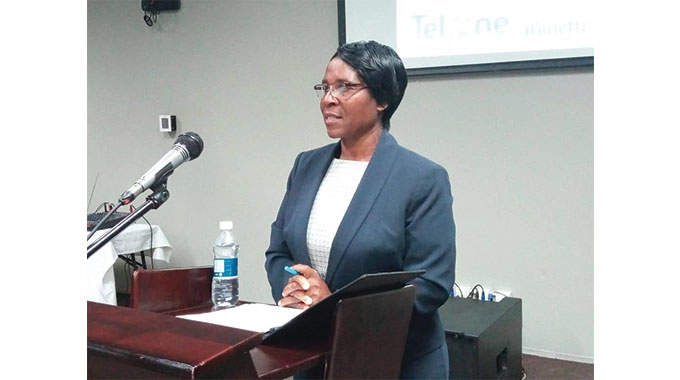COP28: Communities benefit from carbon credits

Conrad Mupesa
Mashonaland West Bureau
As COP28 draws closer, Zimbabwe’s trade in carbon credits has seen many communities in remote areas benefit, with Carbon Green Africa establishing infrastructural and life-changing projects in Kariba, Mbire and Binga districts.
Zimbabwe has made strides in preserving its environment through enacting laws and regulations, which enable it to participate in carbon trading.
The Western media has, however, been on a drive to discredit one of the biggest carbon trading projects which has been operational since 2011, and has gone through five successful verification and validation processes at a gold standard level.
Zimbabwe launched the African Voluntary Carbon Credits Forum (AVCCM) in Victoria Falls in July, with a similar forum held in South Africa in October.
In addition, the Second Republic has promulgated Statutory Instrument 150 of 2023, which governs the trading of carbon credits in the country to streamline the management and control of carbon credit trading.
In separate letters to register their displeasure at those trying to trash the schemes, Chief Chundu, born Abel Mbasera, of Hurungwe District in Mashonaland West and Chief Siabuwa, born Robertson Sibanda, of Binga in Matabeleland North, spoke highly of the developments that carbon credits had brought to their jurisdictions.
Said Chief Chundu: “We have seen some negative stories around the Kariba REDD+ project which are a bit disturbing. The project has helped a lot of people in my community through a lot of projects undertaken by Carbon Green. So we do not know who is coming up with these negative stories.
“I would also want to believe that these are just false rumours to say the project is going to close because of the South Pole, as we have never seen that company on the ground except Carbon Green Africa.”
As per the community agreement with Carbon Green, Chief Chundu said they have pending projects that are expected to run until next year while the ongoing support structure will run until 2041.
“We believe these stories are being made by Western media who do not want to see people of Africa developing and benefiting from their natural resources,” he added.
Under his jurisdiction, the community has benefitted from the trading of carbon credits through the construction of a clinic, an environmental court, bee-keeping projects for hundreds of villagers, and a horticulture garden.
In Kariba rural, the trade in carbon credits has resulted in the construction of classroom blocks, and teachers’ houses, among other projects.
In Kariba, Chief Musampakaruma, Chief Mola and Chief Nebiri have also lauded the benefits of the environmental pay-outs.
In his letter, Chief Siabuwa appreciated the good work that Carbon Green Africa has done.
The organisation runs the Kariba REDD+ for Kariba and Binga communities and Chirisa REDD+ for Mbire District.
“You are also supporting gardening and conservation farming to provide food security in the community. The community is so happy about having the Kariba REDD+ Project because it is continuously helping people.
“Apart from that, the Kariba REDD+ Project is educating communities on environmental management and wildlife conservation hence cases of deforestation and veld fire have been reduced,” said Chief Siabuwa.
“Other countries are negatively criticising Kariba REDD+ Project for not having done well for the communities under the project. In this context, I would like to make it clear that the Kariba REDD+ Project is playing a fundamental role in the Siabuwa community.”
The Kariba REDD+ being one of the most recognised projects in the country and beyond, is likely to put Zimbabwe on a pedestal and high standing during the COP28 to be held in Dubai from November 29 to December 12.
Zimbabwe has signed a memorandum of understanding with Dubai’s Blue Carbon company to develop more carbon projects in the country.
Carbon Green Africa managing director, Mr Charles Ndondo, said they will continue to ensure communities benefit.
“It is common knowledge that Zimbabwe is suffering from sanctions imposed by the West, which inhibited financial inflows into the country, which has mostly affected the ordinary rural populace. Why would the Western media now be interested in the welfare of the ordinary Zimbabwean people by alleging that the Kariba REDD+ project has not benefited the ordinary people.
“The Western media is just trying to discredit corporates from buying credits generated out of Zimbabwe such that the ordinary communities continue to suffer without an alternative from these people from the West,” he said.
The Western media at one point in time discredited the Belarus credits, which were offered to AVCCM saying they were not genuine.
Added Mr Ndondo: “It is time Zimbabwe and the rest of Africa join hands and be given a fair opportunity to trade its carbon credits without malicious investigations.”
He said through the engagement and re-engagement drive, the Government has indicated to the world that it has nothing to hide and should be given “an equal opportunity to work smoothly with Zimbabwean entities that have developed carbon projects”.







Comments